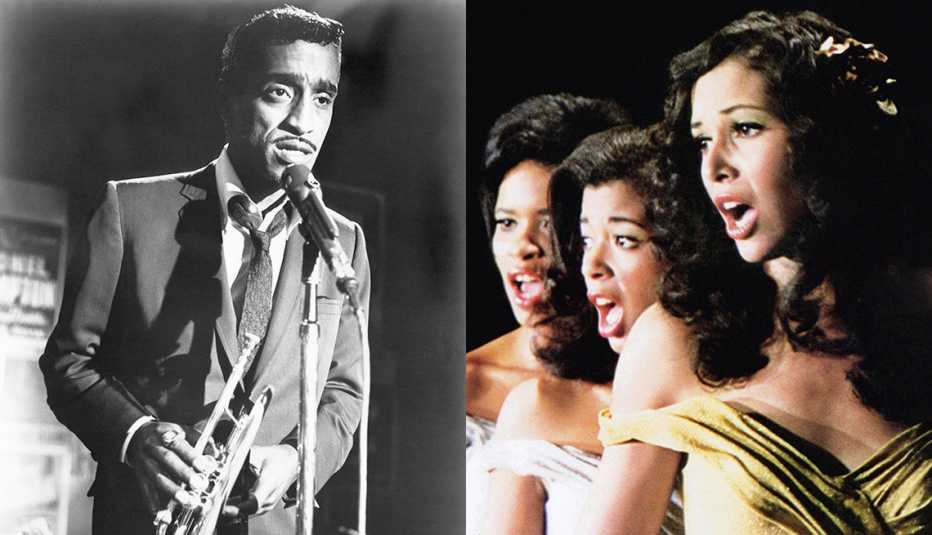Staying Fit


Some rabbit holes are so worth the tumble. In late August of this year, Maya S. Cade launched Black Film Archive, a website that directs cinema adventurers to the movies that preceded the Black film boom of the late 1980s and ’90s led by Spike Lee and John Singleton, the Hudlin brothers and Julie Dash, among others. The archive goes from 1915 up to 1979 (the year The Wiz underperformed at the box office and studios got skittish about an investment they’d never actually made).
Not only does Cade write deft film notes (making for great reading even if you’re not looking for what to watch tonight), and she often sends viewers to streaming storehouses not named Netflix, Hulu or Amazon so that you can enjoy spreading your viewing beyond the corporate entertainment behemoths. Here are 11 terrific films worth checking out now.
Don’t Miss This: The 5 Best Spike Lee Films You Haven’t (Yet) Seen


AARP Membership— $12 for your first year when you sign up for Automatic Renewal
Get instant access to members-only products and hundreds of discounts, a free second membership, and a subscription to AARP the Magazine.
Within Our Gates (1920)
Duke University houses an archive of the early 20th century auteur Oscar Micheaux. For a spell, a festival named for him made South Dakota home, because he’d been a homesteader there. (It’s now in Los Angeles.) In 1987, the film pioneer got a star on the Hollywood Walk of Fame. Even so, many a film aficionado may not know the man considered Hollywood’s first Black filmmaker. With its proximity to D.W. Griffith’s 1915 epic (and epically racist) celebration of the KKK, The Birth of a Nation, and having been made in the aftermath of 1919’s Red Summer of murderous white riots — from Tulsa to Chicago and San Francisco to Washington — this 1920 silent film represents a rebuff to the Griffith’s false fable of who needed protection from whom.
Watch it: Within Our Gates
Rev. S. S. Jones Home Movies (1924-28)
The sweetest 16 minutes in the archive may be the work of the Rev. Solomon Sir Jones, who shot 16 mm footage of Black Oklahoma communities in the years 1924 to 1928. It’s often just footage of people living: plowing a field, coming out of a bank, visiting a delicatessen, feeding hens and chicks, and playing football. There are also baptisms and funerals, church services and schoolyard calisthenics. The evocative images of the wonderful quotidian go on. Given the Tulsa Race Massacre in 1921, these images of Black joy also feel like poignant evidence of Black resilience.
Watch it: Rev. S. S. Jones Home Movies
A Man Called Adam (1966)
Sammy Davis Jr. portrays Adam Johnson, a coronet virtuoso and the front man for his self-named jazz quintet, in this 1966 movie (directed by Sean Penn’s dad, Leo). When best friend Nelson (Ossie Davis) introduces Adam to civil rights activist Claudia (a young Cicely Tyson), they meet prickly. After all, Adam just kicked her grandfather (Louis Armstrong) out of the apartment Nelson had loaned them. Depicting Black resistance, frustration and fury (in a masculine versus feminine way at times), this crisp black-and-white movie is overheated but fun to watch — and listen to. Benny Carter composed the aptly swinging score. Trumpeter Nat Adderley blows hot and oh so cool, providing Adam Johnson’s high notes. Davis takes care of the low, as Johnson sinks into drink and a racially tinged despair.
Watch it: A Man Called Adam

































































More From AARP
17 Essential Films About the Black Experience
From ‘A Raisin in the Sun’ to ‘Get Out,’ these movies span the vast culture of Black life in America11 Black Filmmakers You Should Know
Up your watch list game with these essential directors and their worksFantastic Fiction by African American Authors
11 novels we love by Colson Whitehead, Brit Bennett and more